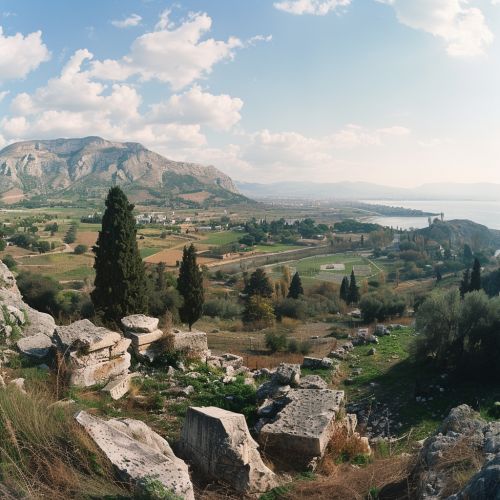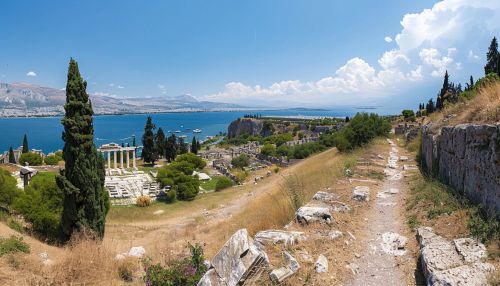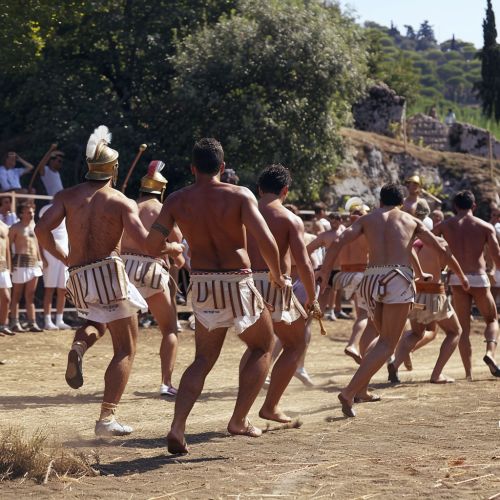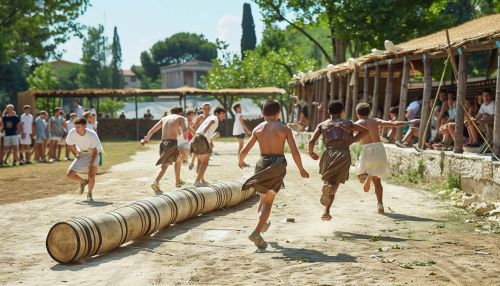Isthmian Games
Origins and History
The ancient Greek Isthmian Games were one of the four Panhellenic Games, a series of athletic and musical competitions held in honor of various deities. The Isthmian Games were dedicated to Poseidon, the god of the sea, earthquakes, and horses. The games were named after the Isthmus of Corinth, where they were held.


The Isthmian Games were established in the 6th century BC, around the same time as the Olympic Games. The exact year of their establishment is not known, but it is believed to be around 582 BC. The games were held every two years, in the first and third years of each Olympiad. The Isthmian Games, like the other Panhellenic Games, were a significant event in the Greek calendar and attracted competitors from all over Greece.
Events
The Isthmian Games included a variety of athletic and musical events. The athletic events included chariot races, pankration, boxing, and pentathlon, which consisted of five events: long jump, discus throw, javelin throw, running, and wrestling. The musical events included competitions in singing, playing the flute, and playing the lyre.
Significance and Influence
The Isthmian Games were an important part of Greek culture and had a significant influence on Greek society. They were not just athletic competitions, but also a religious festival and a venue for political discussions and negotiations. The games were a unifying event for the Greek city-states, and they played a significant role in promoting peace and unity among the Greeks.


The Isthmian Games also had a significant influence on the development of sports and athletics in ancient Greece. They helped to standardize the rules and formats of various athletic events, and they contributed to the development of athletic training and competition strategies.
Decline and Legacy
The Isthmian Games continued to be held until the 4th century AD, when they were abolished by the Roman emperor Theodosius I as part of his efforts to suppress paganism. However, the legacy of the Isthmian Games lived on in the form of the Olympic Games, which were revived in the modern era.
The Isthmian Games also left a lasting legacy in the field of literature. Several ancient Greek poets, including Pindar and Bacchylides, wrote victory odes for the winners of the Isthmian Games. These odes are some of the most important sources of information about the games.
